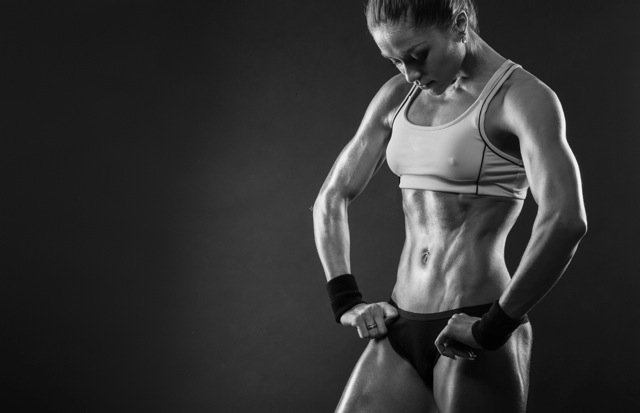Fitness Inventor


The Future of Probiotics & Prebiotics in Health & Fitness
I predict the two most revolutionary trends in health and fitness over the next several years will be in the areas of genetic testing and bacteria. The first is pretty obvious, but the second may come as a surprise. Then consider the 100 trillion tiny bugs and over 1,000 potential species living in and on our bodies, mainly in the gut. The fascinating part is that we all have different numbers and species of bacteria. The type of bacteria that resides in our guts is determined by our diet, antibiotic use, and genetics, and this profile varies greatly among individuals. Most importantly, the concentration and type of our bacteria profile is associated with several aspects of health, immunity, and body fat!
Among the basic, well-established effects of these little critters are protection of the body against disease-causing microbes and aid in absorption of nutrients, especially in the lower gut.

Your microbiota (the body’s bacteria) also help determine your body fat levels. Research demonstrates that when you introduce the gut bacteria of obese animals into normal-sized animals, the normal animals become obese. Also, when human gut bacteria are transplanted into mice, these mice get significantly fatter too. As might be suspected then, gut bacteria of obese people are significantly different than that found in people of a healthy weight. For instance, certain bacteria of the Firmicutes variety are significantly increased in obese people, and levels decrease dramatically when they lose weight. On the other hand, bifidobacteria levels are lower in obese individuals. Not only that, but those people with fewer and less diverse microbiota in the body are at significantly greater risk of obesity.
Scientists have discovered that certain bacteria can increase body fat through fermentation of various fibres and other carbs into short-chain fatty acids. Obese people have more of the types of bacteria that can produce these fats, and thus more of the calories they eat from fibre and carbohydrates are absorbed and can be retained as body fat.
Certain bacterias can even stimulate the endocannabinoid pathway, increasing appetite. Yes, it’s the same pathway that gives pot smokers “the munchies”!
So, how do we achieve “lean” bacteria? Well, you can’t do much about your genetics, and I certainly wouldn’t second-guess a good doctor if he or she tells you to use an antibiotic, but we can change our diets and certain supplements that can help jack up the good bacteria and decrease the bad guys.

You can take probiotics (the actual bacteria, which may improve your gut bacteria profile) or prebiotics (not actually bacteria but are made up of fibre that acts as “food” for good bacteria). The best prebiotic is fructooligosaccharide (or oligofructose), which is a potent stimulator of Bifidobacteria, (found to be present in low concentrations in obese people). It’s found in several types of fruit and vegetables.
Probiotics are a little more hit and miss, and this goes back to why bacteria is more of a future trend than a current solution. You see, until you can determine someone’s unique bacteria profile, what the optimal bacteria to introduce is, and what optimal final profile is best, you can’t be very sure of producing positive effects. However, someday, just as we will all have our genes tested so doctors can treat us more effectively (so we can use more effective diet and exercise protocols geared to our personal genetics), we’ll have our bacterial profile diagnosed to treat everything from depression to obesity.
For more information about Probiotics and fat loss, click here!

